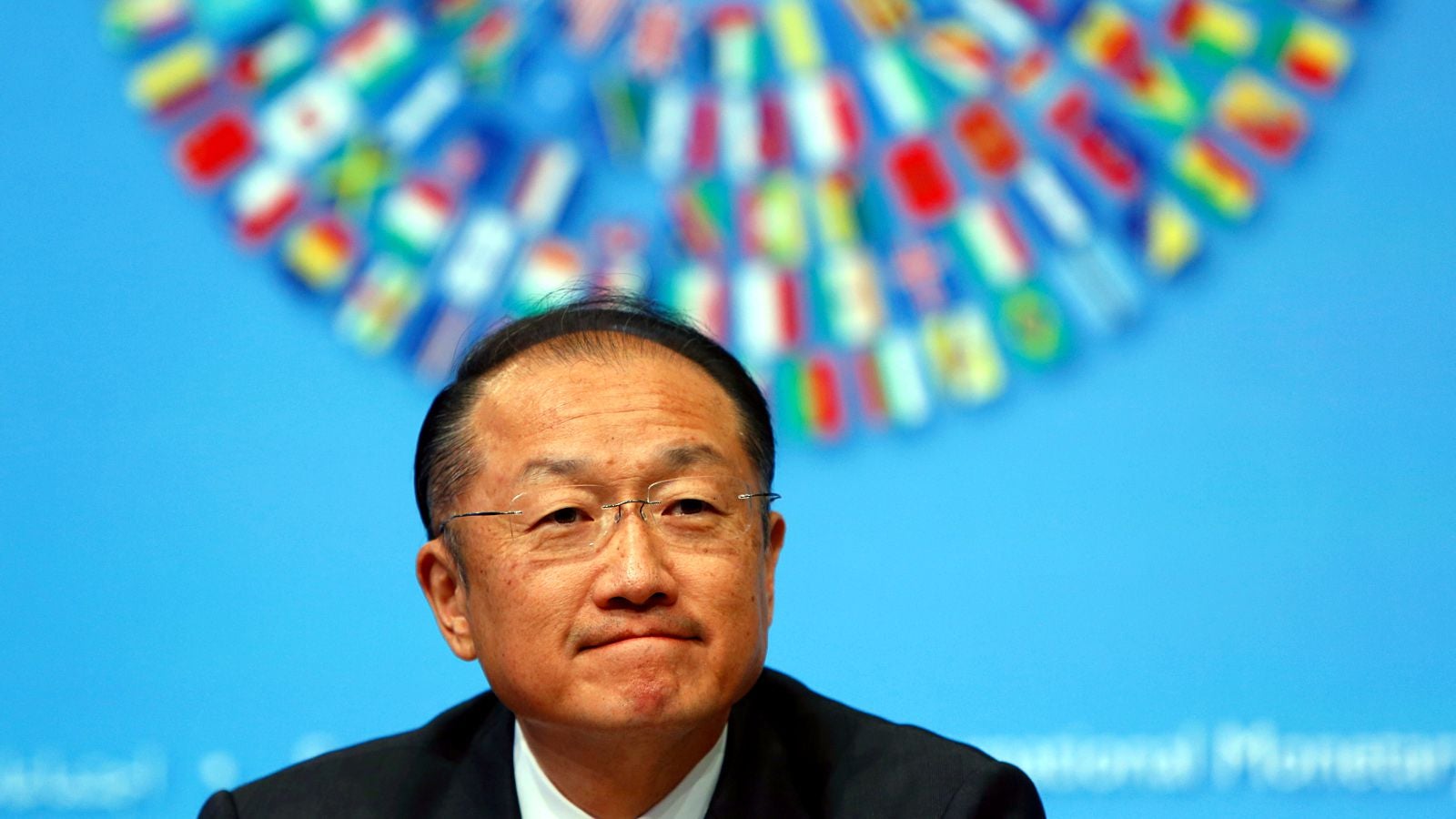These might be the only bankers who think executive bonuses are too high
Not many bankers complain about executive compensation being too high—and even fewer contemplate a brief strike to warn the powers that be of their objections.


Not many bankers complain about executive compensation being too high—and even fewer contemplate a brief strike to warn the powers that be of their objections.
But the World Bank isn’t your typical finance institution, and ahead of next week’s annual meeting of the bank and its sister institution, the International Monetary Fund, staffers are up in arms over a bonus—excuse me, a “scare skills premium”—paid to the bank’s CFO. Employees are considering a 15-minute work stoppage this morning to express their displeasure with management, and in particular with World Bank president Jim Yong Kim.
Kim, an American, took over the World Bank in 2012 and has been leading the organization through a complicated evolution. Many of the development bank’s traditional customers are the emerging markets who have grown so rapidly in recent years that they no longer need to rely on subsidized loans, turning instead to direct private investment or the capital markets. Kim has been tasked with re-tooling the organization to be more focused on technical expertise and reducing extreme poverty.
But any institution cutting its budget by $400 million (and its ranks by 1,000 employees, roughly one in 10) is going to generate some discontent. That’s the context in which the $94,000 bonus to CFO Bertrand Barde, a French banker, rankled workers. At the same time, Kim has also been criticized for letting experienced employees leave the bank as it refocuses its mission; this kind of bonus is likely important in retaining top talent.
Even outside critics of Kim’s administration may see this conflict as a sign that reform hasn’t gone far enough inside the organization; the new president has neither eliminated waste nor won over its rank and file to get on board with the goal of more efficiency. That would be a shame: Even with fewer massive development loans to fund, there is still plenty of vital development work to be done for an institution with the resources of the World Bank.